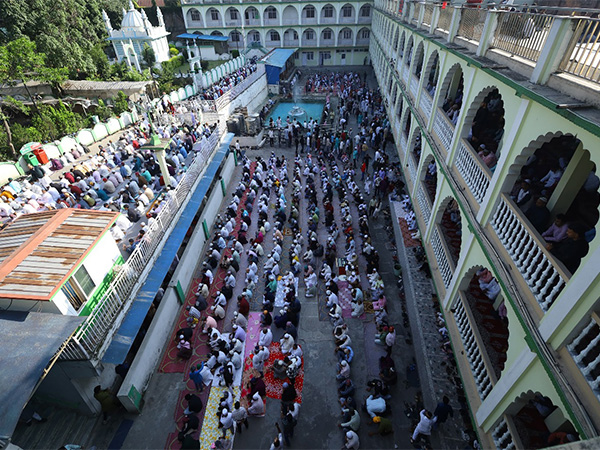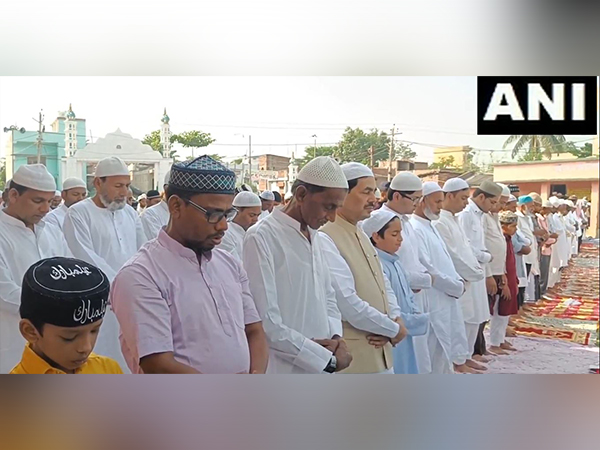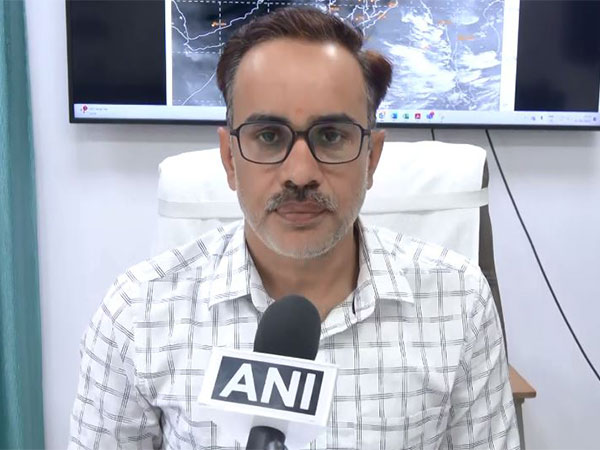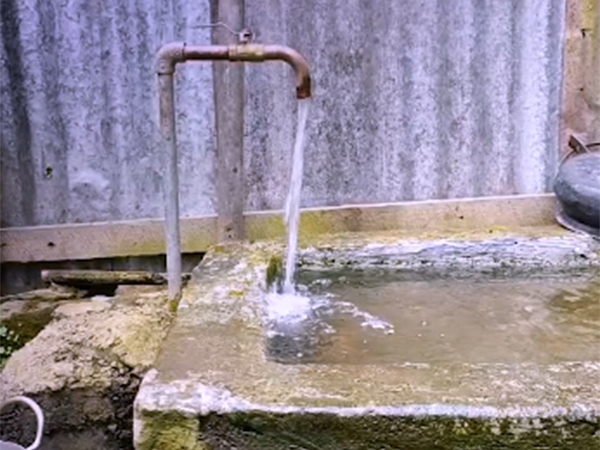By Binod Prasad Adhikari
Kathmandu [Nepal], June 7 (ANI): Eid al-Adha, one of the two major festivals in Islam, is being celebrated across Nepal on Saturday with mass prayers, feast and exchange of greetings.
Eid al-Adha is traditionally celebrated on the 70th day after Ramadan. Muslims begin the day with a ritual bath and then proceed to the nearest mosque or Idgah to offer prayers. Following the prayers, it is customary to exchange greetings with one another.
In Nepal’s capital, people gathered at the Kashmiri Mosque and took part in the mass Namaz ceremony. Upon completion of the Namaz ceremony, the attendees exchanged greetings of “Eid Mubarak” to each other.
Eid al-Adha is the second Islamic festival of the year and follows Eid al-Fitr, which marks the end of Ramadan, the holy month of fasting. The date changes every year, as it’s based on the Islamic lunar calendar, which is about 11 days shorter than the Western 365-day Gregorian calendar. It is celebrated as a commemoration of Prophet Abraham’s willingness to sacrifice everything for God.
Eid al-Adha is called Id-ul-Adha in Arabic. There is a tradition of sacrificing a goat or ‘bakri’ on the occasion. It is a festival that is celebrated with traditional fervor and gaiety. Many Muslims wear new clothes and attend an open-air prayer meeting during Id-ul-Zuha. They may sacrifice a sheep or goat and share the meat with family members, neighbours and the poor. Many Muslims feel that they have a duty to ensure that all Muslims can enjoy a meat-based meal during this holiday.
“In the morning, we completed Namaz. After this, we went back home and sacrificed a goat and invited friends and relatives to the feast. The sacrifice continues for three days, till Monday, starting from today. Various delicacies are made from the sacrificed goat and offered to friends and relatives, and we visit them,” Mohammad Javed, an attendee of the mass Namaz ceremony, told ANI.
On the occasion of Eid al-Adha, Muslims who are financially capable travel to Mecca and Medina in Saudi Arabia to perform the Hajj pilgrimage.
Since Islamic festivals follow the Hijri (lunar) calendar, the dates shift approximately 10 days earlier each year on the Gregorian calendar. As a result, the timing of Eid al-Adha changes annually and completes a full cycle every 36 years. (ANI)
Disclaimer: This story is auto-generated from a syndicated feed of ANI; only the image & headline may have been reworked by News Services Division of World News Network Inc Ltd and Palghar News and Pune News and World News
HINDI, MARATHI, GUJARATI, TAMIL, TELUGU, BENGALI, KANNADA, ORIYA, PUNJABI, URDU, MALAYALAM
For more details and packages

















